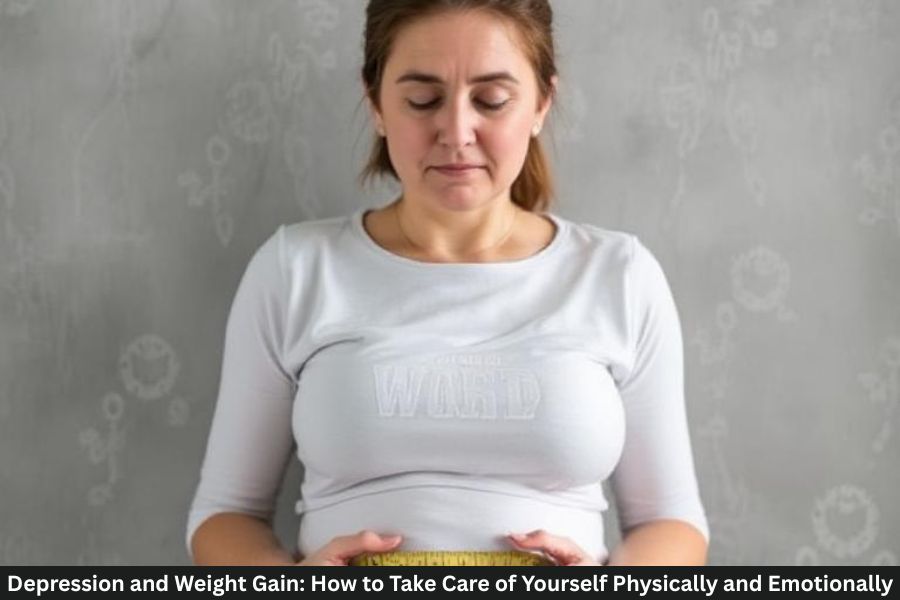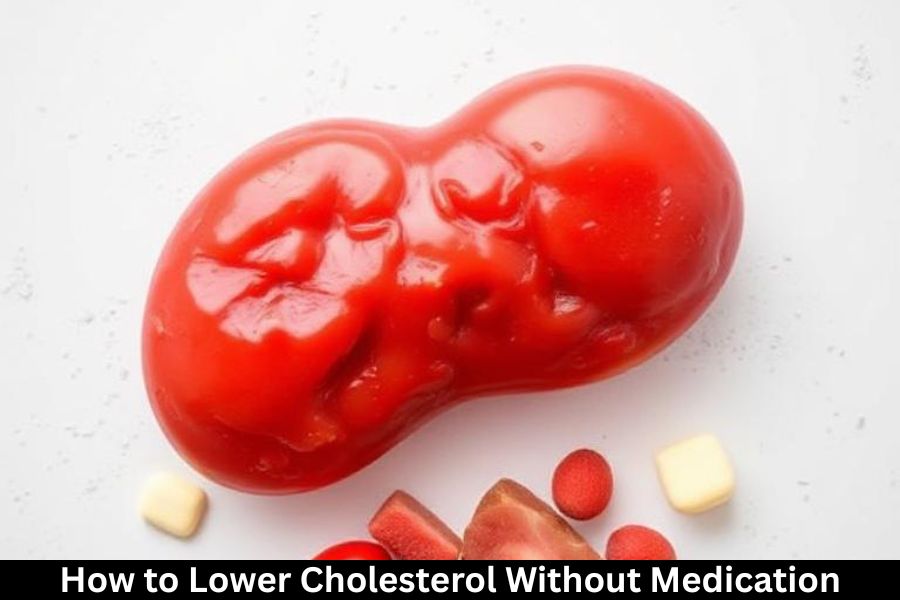Have you ever noticed that during tough emotional times, your body seems to change too? Depression doesn’t just affect your mind—it can take a toll on your body, often leading to weight gain. Emotional eating, lack of motivation, and hormonal imbalances can all make it harder to maintain a healthy weight. But the good news is that by understanding this connection, you can take small, powerful steps to care for both your body and your mind.
The Connection Between Depression and Weight Gain
How Emotional Eating Plays a Role
When we’re sad, anxious, or stressed, food can feel comforting. This is called emotional eating, where eating becomes a coping mechanism rather than a hunger response. High-fat and high-sugar foods release dopamine—a “feel-good” chemical—which temporarily eases emotional pain but can lead to long-term weight gain.
The Impact of Hormones and Metabolism
Depression can disrupt hormonal balance, especially cortisol, the stress hormone. Elevated cortisol levels increase appetite and encourage fat storage—particularly around the abdomen. Meanwhile, serotonin (the “happiness” hormone) often decreases, causing cravings for sugary foods that provide a quick but short-lived mood boost.
Understanding the Emotional Side of Depression
Common Emotional Triggers
Loss, loneliness, chronic stress, or trauma can all trigger depressive symptoms. These emotions may lead to overeating or neglecting meals, creating an unhealthy cycle of energy crashes and emotional lows.
How Depression Changes Motivation and Routine
Depression often steals motivation. You may lose interest in exercise, skip meals, or overindulge in comfort food. Over time, these habits slow metabolism and lead to weight gain—adding to the emotional burden.
How Depression Affects Physical Health
Sleep Disruption and Fatigue
Poor sleep is both a symptom and a cause of depression. Lack of sleep interferes with hunger hormones—ghrelin and leptin—causing increased appetite and late-night snacking.
Increased Cortisol and Weight Retention
Chronic stress from depression elevates cortisol, which promotes fat retention. Combined with decreased activity, this creates a perfect storm for unwanted weight gain.
Breaking the Cycle of Depression and Weight Gain
Recognizing the Warning Signs Early
The first step is awareness. Notice patterns like frequent emotional eating, skipping workouts, or oversleeping. Awareness allows you to make small changes before the cycle deepens.
Creating Realistic Health Goals
Instead of chasing quick fixes, focus on small, sustainable steps—like adding more vegetables, taking short walks, or journaling your emotions. Progress matters more than perfection.
Nutrition and Mindful Eating
Avoiding Emotional Binge Eating
Before eating, ask yourself: Am I hungry or just seeking comfort? Practicing mindful eating—paying attention to taste, texture, and fullness—helps prevent overeating.
Foods That Boost Mood Naturally
- Omega-3 fatty acids (salmon, walnuts)
- Complex carbs (oats, quinoa) for steady energy
- Leafy greens and berries rich in antioxidants
- Dark chocolate for serotonin support
These foods nourish both body and mind.
The Power of Movement
Exercise as a Natural Antidepressant
Physical activity releases endorphins, the body’s natural mood boosters. It also reduces stress, improves sleep, and enhances self-esteem.
Simple Ways to Stay Active Every Day
- Go for a 20-minute walk after meals
- Practice gentle yoga or stretching
- Try dancing to your favorite music
- Take the stairs instead of the elevator
You don’t need a gym membership—just consistency.
Rest and Recovery
Importance of Quality Sleep
Aim for 7–9 hours of rest. Good sleep regulates hormones, reduces cravings, and improves mood. Create a bedtime routine: dim lights, avoid screens, and unwind with calm music.
Relaxation and Self-Care Practices
Self-care isn’t selfish—it’s survival. Activities like reading, taking a bath, meditating, or spending time in nature can recharge your emotional batteries.
Building Emotional Resilience
Therapy and Counseling Options
Talking to a mental health professional can be transformative. Therapies like CBT (Cognitive Behavioral Therapy) help reframe negative thoughts and build healthy coping habits.
Practicing Mindfulness and Gratitude
Daily mindfulness helps you stay present and reduces anxiety. Gratitude journaling—writing three things you’re thankful for each day—can gradually shift your emotional perspective.
Social Support and Connection
Talking About Your Struggles
Opening up about your feelings with trusted friends or family can lighten emotional weight. You’re never alone, even if depression makes it feel that way.
Surrounding Yourself with Positive Energy
Engage in communities—online or offline—that uplift you. Positive social interactions improve mood and reduce emotional eating tendencies.
When to Seek Professional Help
If you notice persistent sadness, drastic weight changes, or loss of interest in daily activities for more than two weeks, reach out for professional help. Combining therapy, nutrition, and lifestyle changes often brings the best results.
Conclusion
Depression and weight gain are deeply interconnected, but neither defines you. Healing is possible—through self-awareness, balanced nutrition, movement, rest, and emotional support. The journey may be slow, but each step forward is a victory. Be gentle with yourself, prioritize both your physical and emotional needs, and remember—you deserve to feel good inside and out.
FAQs
1. Why does depression cause weight gain?
Depression affects hormones, appetite, and motivation, often leading to overeating and reduced physical activity.
2. Can losing weight improve mental health?
Yes, regular exercise and healthy eating can boost serotonin levels and reduce depressive symptoms.
3. What are the best exercises for people with depression?
Low-pressure activities like walking, yoga, and swimming are great starting points.
4. Are antidepressants linked to weight gain?
Some medications may affect metabolism, but your doctor can help manage or adjust them if necessary.
5. How can I stay consistent with self-care?
Set small daily goals—like drinking enough water or journaling. Small actions add up to big emotional wins.



